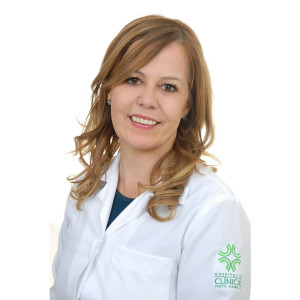Ida Vanessa D. Schwartz

From
Federal University of Rio Grande do Sul - BR
In residence at
Imaging and Brain laboratory (iBrain) / INSERM, University of Tours - FR
Host scientist
François Maillot
BIOGRAPHY
Ida Vanessa Doederlein Schwartz is a medical geneticist, scientist, and mother of Rosa, born prematurely in 2009. She is a full professor in the Department of Genetics at UFRGS, a professor in the Postgraduate Programs in Genetics and Molecular Biology, and Medical Sciences at the Faculty of Medicine of UFRGS. She is also the leader of the research group "Health Technology Assessment for Clinical Genetics" and the coordinator of the Brazilian National Institute on Rare Diseases - InRaras. Currently, she is the President of the Brazilian Society of Medical Genetics and Genomics. In 2007, she received the L'ORÉAL - UNESCO - Brazilian Academy of Sciences Grant Program for Women in Science Award. She has published over 200 indexed articles, with an H-index (Web of Science) of 37.
PROJECT
Deep phenotyping of Phenylketonuria patients: unrevealing novel aspects of genotype-phenotype association
Phenylketonuria (PKU) is a pan-ethnic rare autosomal recessive disease that is the prototype for the treatment of genetic diseases. It is caused by the presence of biallelic pathogenic variations in the PAH gene. The enzyme produced by this gene (phenylalanine hydroxilase - PAH) converts phenylalanine into tyrosine; on normal diet, patients have high levels of phenylalanine, which are neurotoxic. Furthermore, due to the treatment aspects (the recommended diet is usually high in carbohydrates), patients are at risk of developing obesity. There is a broad spectrum of severity in this disease, which is partly explained by the allelic heterogeneity associated. Recently, the products of some genes (DNAJC12 and HULC) were described as interfering with the PAH activity, but they were not evaluated as genetic modifiers in clinical studies. Some others, like the SLC7A5 gene encoding the small subunit 1 of the large neutral amino acids transporter (LAT1), have been studied in very small cohorts, with inconclusive results. A better understanding of the genetic factors that may influence the outcome of PKU treatment, and targeting novel therapeutic strategies, is important because the adherence to the dietary treatment in PKU decreases with age, highlighting the existence of unmet treatment needs for this disease. Genotype-phenotype association studies depend on a good clinical characterization of patients. This study is innovative because it will explore the possibility of new genetic players in the genotype-phenotype association for PKU in a large cohort of adult patients . The ECOPHEN cohort study includes 187 French adult patients with PKU, very well characterized in relation to neurological and nutritional outcomes, but not evaluated in relation to PAH variations or genotype-phenotype association. We aim at sequencing the PAH, DNAJC12, SLC7A5 and HULC genes in DNA samples of those patients, and associate the
presence/severity of variants to clinical outcomes. We expect to identify variants that may act as modifier factors and thus be amenable to new strategies of treatment.
